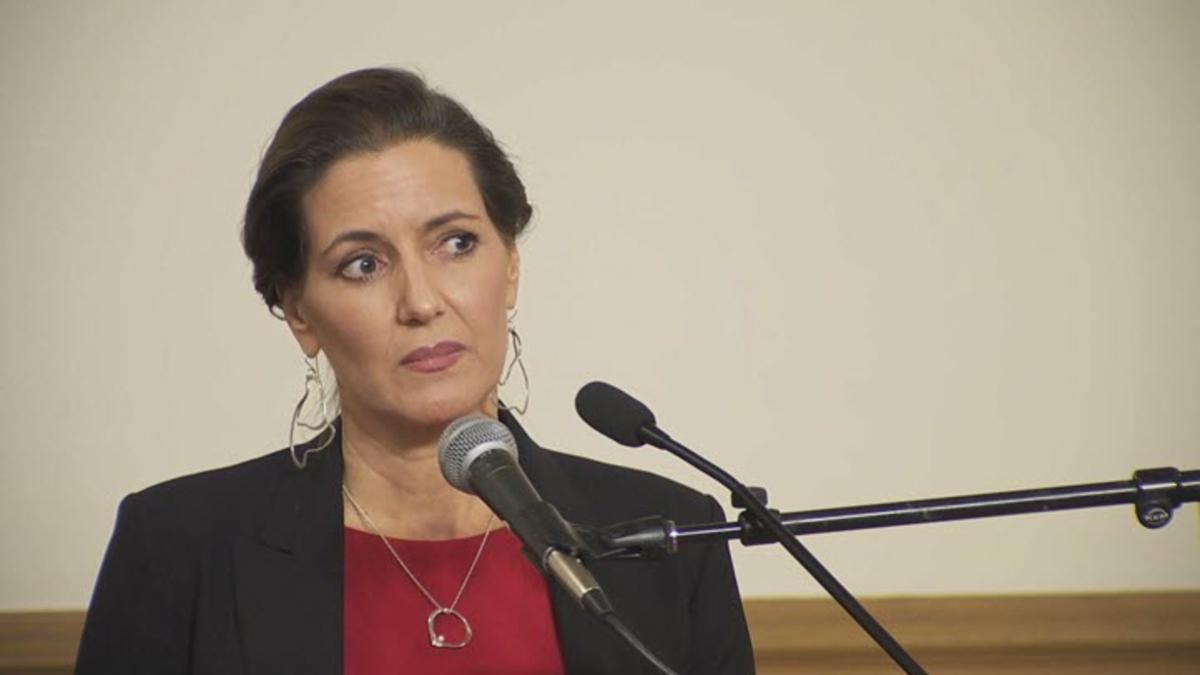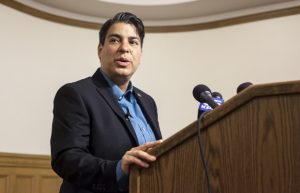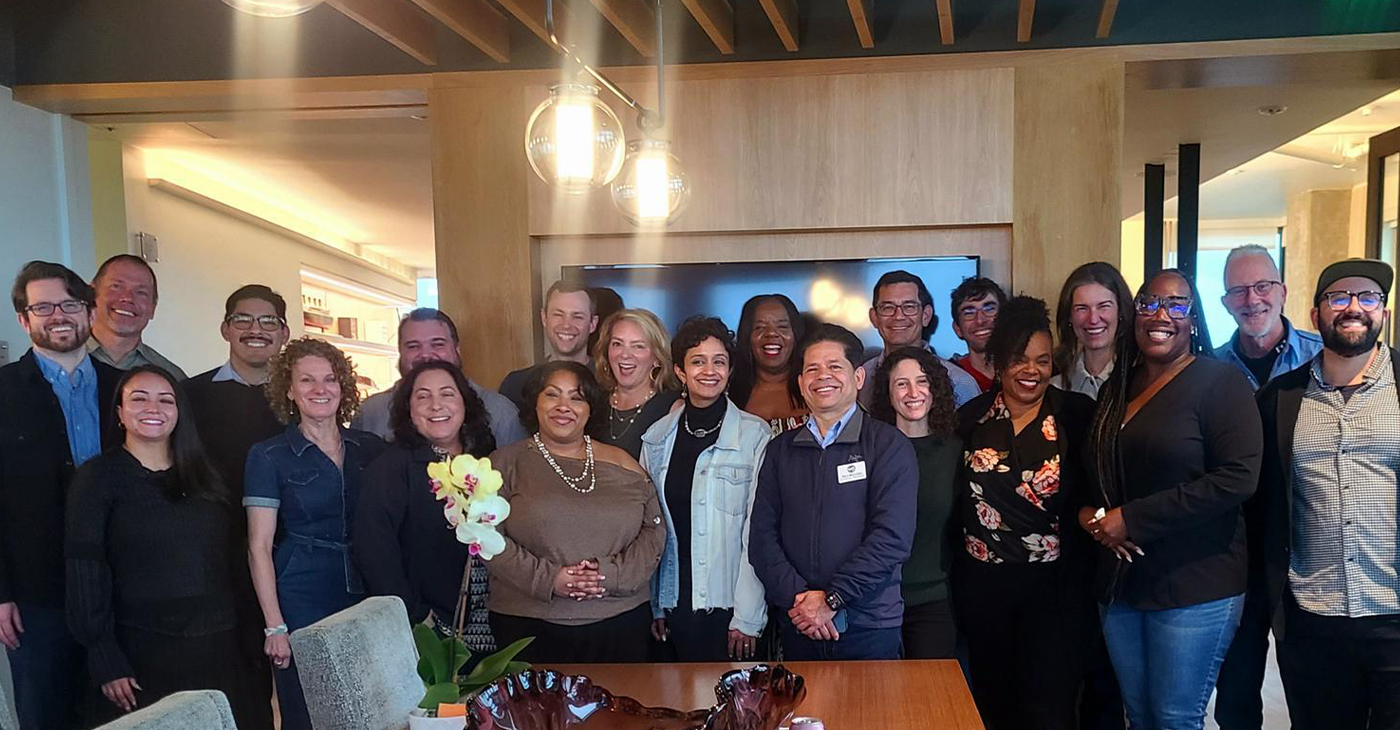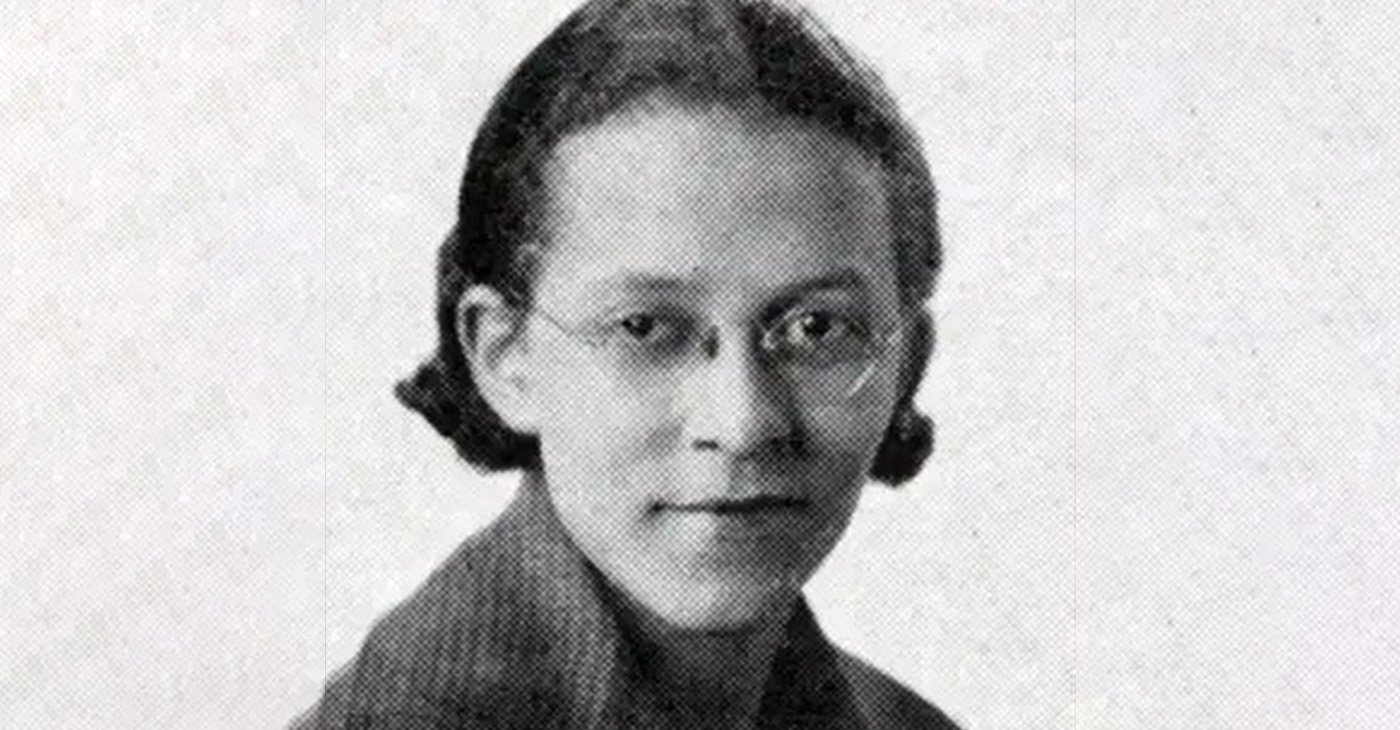Housing
Schaaf’s Proposals for Building Affordable Housing on Public Land Challenged

Community activists and others are raising concerns about whether the latest affordable housing proposals backed by Mayor Libby Schaaf’s administration would even make a dent in the wave of gentrification and displacement that is remaking the city right in front of their eyes.
Looking at the basic numbers, one of the most contentious issues in the city staff’s proposal is how many affordable units can be built on available public land.
The administration’s report claims that there are only 20 parcels available for housing development and that six of those need to be sold to market rate developers in order to subsidize affordable housing on the remaining 14 parcels. promising only 746 units in the price range that many Oaklanders could afford.
That number of potential units seems like a pittance to affordable housing advocates who point to the magnitude of the crisis—the unending surge of homelessness, and the huge numbers of seniors, young workers, teachers and city workers who are being forced out of the city.
The Schaaf administration proposal acknowledges the City owns over 1,000 parcels of land, but says only 20 of them are suitable for residential housing.
Of those 20 buildable parcels, totaling 24 acres, 14 would be utilized for affordable housing. Of the remaining six parcels, one would be sold for market-rate housing, totaling 492 units, and five be sold for market-rate commercial development, according to staff.
However, there are reports that show there is significantly more public land available, and many more units could be built on those properties, according to Margaretta Lin of the Dellums Institute for Social justice.
A former Deputy City Administrator, Lin led the work on the city’s Housing Equity Roadmap plan in 2014 that was adopted by the City Council in Fall 2015.
Lin said two reports show there are “50 publicly owned vacant or underutilized parcels that the City’s Housing Element identified as suitable for housing development, which could produce over 7,300 new housing units.”
The city owned 36 of these parcels which are capable of producing over 3,600 housing units per the City’s Housing Element, and other public agencies own the other 14, she said. However, the City sold one of those parcels, capable of producing 25 units, in January 2018 to what appears to be a market rate developer. (The reports are available at www.dellumsinstitute.org/community-justice-data/)
“We commissioned the two public land reports from UC Berkeley Public Policy and City Planning in 2015 because none of the City departments had a full list of City owned land. With the departure of Claudia Cappio who was briefed on this information, the City administration may be lacking complete information,” she said.
Councilmember Rebecca Kaplan said city staff makes two separate mistakes in estimating how many affordable units can be built.
“They are undercounting the number of suitable parcels that the city owns, and their estimate is way lower than the number of units that could be built on them,” said Kaplan.
Another major contentious issue is how to pay for construction of affordable housing. City staff wants to sell public land to market-rate developers to pay for affordable housing development.
The “staff strategy assumes” utilizing market-rate development on the six parcels in order to generate revenue to pay for “100 percent affordable housing for the other 14 sites,” said Mark Sawicki, director of Economic and Workforce Development Department, speaking on behalf of the Schaaf administration at last week’s Community and Economic Development (CED) Committee meeting.
The number of affordable units is constrained by the availability of funding, according to Sawicki’s report. Building 100 percent affordable units on the 20 parcels would increase the total number of possible units on the 20 parcels to 1,080, but it would take 10 to14 years to raise the $112 million needed to cover construction costs.
Staff’s proposal, on the other hand, would only cost the city $6 million (plus the sale of six parcels of land), which could be raised in three to four years, he said.
The question of funding, said Lin, depends on how the city defines the problem and the solutions.
“If the public policy problem is defined as a State of Emergency especially for people who are the working poor and/or newly homeless, then we would utilize every resource available, especially public lands,” she said.
But the traditional funding model does not work when “it costs $500,000 to $650,000 to build one housing unit, and the City needs to provide $150,000 to $165,000. Instead, if the City looked at new innovative housing development and financing models, such as new and attractive mobile homes that cost $35,000 a unit, that other communities are deploying, then the (costs)math would be completely different,” said Lin.
 Councilmember Kaplan, a longtime supporter of utilizing public property for affordable housing, says the staff “strategy” proposal does not consider other sources of funding: the city’s Measure KK, Alameda County’s A1 housing bond where Oakland is anticipated to receive over $200 million for affordable housing, impact fees, new State housing funds, and foundation grants.
Councilmember Kaplan, a longtime supporter of utilizing public property for affordable housing, says the staff “strategy” proposal does not consider other sources of funding: the city’s Measure KK, Alameda County’s A1 housing bond where Oakland is anticipated to receive over $200 million for affordable housing, impact fees, new State housing funds, and foundation grants.
“If they need to sell parcels, why not sell some of those that can’t be used for housing?” Kaplan asked.
Another issue that deeply concerns affordable housing advocates is whether the staff’s strategy would have teeth or would result in something the administration could modify or ignore as wished.
After meetings between staff and housing advocates on developing an affordable housing policy dragged on for almost two years, city staff announced a few months ago that they were no longer interested in passing a policy, instead proposing a “strategy” on how to utilize the 20 parcels of land.
“The mayor and the people who work for her have been trying to kill the policy all along,” said Councilmember Kaplan. “Even if we adopt a strategy, we need a policy,” she said.
The desperate need is for the City Council to adopt a binding public lands policy, said Lin.
According to Lin, as of December 2017, “there were 20,000 market-rate housing units under construction or in the pipeline, compared with less than 1,500 affordable units.”
“We’re in Oakland’s worst housing crisis in its entire history,” she said. “And affordable housing developers are having a hard time competing with market rate developers for access to land.
“An equity-based public land policy would solve this access to land problem. Market-rate housing developers don’t need public resources. They’re doing fine.”
Activism
We Fought on Opposite Sides of the Sheng Thao Recall. Here’s Why We’re Uniting Behind Barbara Lee for Oakland Mayor
Today, we are coming together to do all we can to make sure Barbara Lee is elected Mayor in the April 15 Oakland special election. Here’s why. Now more than ever, Oakland needs a respected, hands-on leader who will unite residents behind a clear vision for change. The next mayor will have to hit the ground running with leaders and stakeholders across our political divide to get to work solving the problems standing in the way of Oakland’s progress. Job No. 1: improving public safety. Everyone agrees that all Oaklanders deserve to feel safe in their neighborhoods. But sadly, too many of us do not.

By Robert Harris and Richard Fuentes
Special to The Post
The City of Oakland is facing a number of urgent challenges, from housing and public safety to a pressing need for jobs and economic development. One of us, Robert Harris, supported the November recall vote that removed Mayor Sheng Thao from office. Meanwhile, Richard Fuentes believed the recall was the wrong strategy to tackle Oakland’s challenges.
Today, we are coming together to do all we can to make sure Barbara Lee is elected Mayor in the April 15 Oakland special election. Here’s why.
Now more than ever, Oakland needs a respected, hands-on leader who will unite residents behind a clear vision for change.
The next mayor will have to hit the ground running with leaders and stakeholders across our political divide to get to work solving the problems standing in the way of Oakland’s progress.
Job No. 1: improving public safety. Everyone agrees that all Oaklanders deserve to feel safe in their neighborhoods. But sadly, too many of us do not.
During her three decades in the state Legislature and Congress, Lee made public safety a priority, securing funding for police and firefighters in Oakland, delivering $15.8 million in community safety funding, and more. Today, she has a plan for making Oakland safer. It starts with making sure police are resourced, ready, and on patrol to stop the most dangerous criminals on our streets.
Oakland residents and business owners are feeling the impact of too many assaults, smash/grabs, retail thefts, and home robberies. Lee will increase the number of police on the streets, make sure they are focused on the biggest threats, and invest in violence prevention and proven alternatives that prevent crime and violence in the first place.
In addition, on day one, Barbara Lee will focus on Oakland’s business community, creating an advisory cabinet of business owners and pushing to ensure Oakland can attract and keep businesses of all sizes.
The other top issue facing Oakland is housing and homelessness. As of May 2024, over 5,500 people were unhoused in the city. Oaklanders are just 25% of the population of Alameda County, but the city has 57% of the unhoused population.
Unhoused people include seniors, veterans, single women, women with children, people who suffer physical and mental illness, unemployed and undereducated people, and individuals addicted to drugs. Some are students under 18 living on the streets without their parents or a guardian. Research shows that 53% of Oakland’s homeless population is Black.
Starting on her first day in office, Lee will use her national profile and experience to bring new resources to the city to reduce homelessness and expand affordable housing. And she will forge new public/private partnerships and collaboration between the City, Alameda County, other public agencies, and local nonprofits to ensure that Oakland gets its fair share of resources for everything from supportive services to affordable housing.
Besides a public safety and housing crisis, Oakland has a reputational crisis at hand. Too many people locally and nationally believe Oakland does not have the ability to tackle its problems.
Lee has the national reputation and the relationships she can use to assert a new narrative about our beloved Oakland – a vibrant, diverse, and culturally rich city with a deep history of activism and innovation.
Everyone remembers how Lee stood up for Oakland values as the only member of Congress not to authorize the disastrous Iraq War in 2001. She has led the fight in Congress for ethics reform and changes to the nation’s pay-to-play campaign finance laws.
Lee stands alone among the candidates for mayor as a longtime champion of honest, transparent, and accountable government—and she has the reputation and the skills to lead an Oakland transformation that puts people first.
The past few years have been a trying period for our hometown.
Robert Harris supported the recall because of Thao’s decision to fire LeRonne Armstrong; her refusal to meet with certain organizations, such as the Oakland Branch of the NAACP; and the city missing the deadline for filing for a state grant to deal with serious retail thefts in Oakland.
Richard Fuentes opposed the recall, believing that Oakland was making progress in reducing crime. The voters have had their say; now, it is time for us to move forward together and turn the page to a new era.
The two of us don’t agree on everything, but we agree on this: the next few years will be safer, stronger, and more prosperous if Oaklanders elect Barbara Lee as our next mayor on April 15.
Robert Harris is a retired attorney at PG&E and former legal counsel for NAACP.
Richard Fuentes is co-owner of FLUID510 and chair of the Political Action Committee, American Federation of State, County, and Municipal Employees (AFSCME) Council 57.
Activism
District Delegates to State Democratic Party Central Committee Meeting Celebrate Election Victory
Delegates and elected officials were excited for the future of the Democratic Party and making its focus on 1) creating more affordable housing, 2) supporting education, 3) helping working families, and 4) protecting the environment and addressing climate change, with a focus on practical and realistic policy efforts that could have a meaningful impact.

By Ben Gould
Special to The Post
Winners of the February 2025 Assembly District Election Meetings (ADEM) for Assembly Districts 14 and 18 met on Sunday, March 16 to discuss priorities for the California Democratic Party convention in Anaheim coming up in May.
The winners for Assembly District 18 are Genice Jacobs, Bobbi Lopez, Shawn Danino, Ben Gould, Zac Bowling, Nate Hanson, Cathy Adams, Sam Gould, Lauren Wilson, Ashlee Jemmott, and former Oakland School Board Director Sam Davis.
The winners for Assembly District 14 are: Sarah Bell, Neil Tsutsui, Hercules Councilmember Dilli Bhattarai, former Berkeley School Board Director Laura Babitt, former Piedmont Mayor Teddy Gray King, and former Albany Mayor Nick Pilch.
They were joined by Oakland Councilmember Janani Ramachandran, Emeryville Councilmember Courtney Welch, and BART Director Victor Flores to help celebrate their victory.
Delegates and elected officials were excited for the future of the Democratic Party and making its focus on 1) creating more affordable housing, 2) supporting education, 3) helping working families, and 4) protecting the environment and addressing climate change, with a focus on practical and realistic policy efforts that could have a meaningful impact.
Arts and Culture
Beverly Lorraine Greene: A Pioneering Architect and Symbol of Possibility and Progress
Greene graduated from the University of Illinois at Urbana-Champaign in 1936 with a degree in Architecture — a remarkable accomplishment for an African American woman at the time. She was never discouraged by the racial and gender discrimination that saturated her field.

By Tamara Shiloh
In the mid-20th century, Beverly Lorraine Greene was recognized as the first African American woman licensed to practice architecture in the United States.
Greene was born on Oct. 4, 1915, in Chicago during an era when opportunities for African Americans, particularly women, were severely limited.
Her parents, James and Vera Greene, were deeply invested in her education, instilling in her a belief in the power of intellect and perseverance. She grew up during the Great Migration that transformed Chicago starting in 1900.
Greene graduated from the University of Illinois at Urbana-Champaign in 1936 with a degree in Architecture — a remarkable accomplishment for an African American woman at the time. She was never discouraged by the racial and gender discrimination that saturated her field.
Greene continued her education, earning a master’s degree in City Planning and Housing in 1937, also from the University of Illinois. Her ambition was not merely to design structures but to shape spaces that fostered equity and community. In 1942, she became the first African American woman licensed as an architect in the United States, obtaining her credentials in Illinois. This groundbreaking achievement, however, did not translate immediately into job opportunities.
Early in her career, she faced significant discrimination from firms unwilling to hire a Black woman. However, her determination never wavered. In 1945, Beverly moved to New York City, a place she believed could offer broader professional opportunities.
She joined the architectural department of the New York City Housing Authority, focusing on affordable housing projects. Her work during this time reflected her commitment to using architecture as a tool for social justice, ensuring that marginalized communities had access to well-designed, dignified living spaces.
Greene’s talents soon drew the attention of prominent firms. She was hired by Isadore Rosenfield, a respected architect known for designing hospitals. She contributed to the design of healthcare facilities, including the modernization of Harlem Hospital. Her portfolio expanded in collaboration with architectural personalities such as Marcel Breuer and Edward Durell Stone.
Notably, she worked on the prestigious UNESCO headquarters in Paris — a landmark project that brought her skills to an international stage. Her involvement underscored her ability to navigate the intricacies of large-scale, global projects, proving that her talents transcended the limitations society sought to impose.
Greene’s career was tragically cut short when she passed away unexpectedly in 1957 at the age of 41. Though her life was brief, her impact was profound. She shattered entrenched barriers, paving the way for future generations of Black architects and women in the field.
-

 Activism4 weeks ago
Activism4 weeks agoUndocumented Workers Are Struggling to Feed Themselves. Slashed Budgets and New Immigration Policies Bring Fresh Challenges
-

 Activism2 weeks ago
Activism2 weeks agoWe Fought on Opposite Sides of the Sheng Thao Recall. Here’s Why We’re Uniting Behind Barbara Lee for Oakland Mayor
-

 Activism4 weeks ago
Activism4 weeks agoOakland Post: Week of March 5 – 11, 2025
-

 #NNPA BlackPress2 weeks ago
#NNPA BlackPress2 weeks agoRev. Dr. Jamal Bryant’s Black Church Target Boycott Mobilizes 150,000
-

 Activism2 weeks ago
Activism2 weeks agoSan Francisco Is Investing Millions to Address Food Insecurity. Is Oakland Doing the Same?
-

 #NNPA BlackPress4 weeks ago
#NNPA BlackPress4 weeks agoTrump Moves to Dismantle Education Department
-

 #NNPA BlackPress4 weeks ago
#NNPA BlackPress4 weeks agoFighting to Keep Blackness
-

 #NNPA BlackPress2 weeks ago
#NNPA BlackPress2 weeks agoRecently Approved Budget Plan Favors Wealthy, Slashes Aid to Low-Income Americans
















































